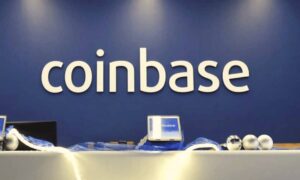Rather than building the metaverse and hoping users will come, Microsoft is developing the means to access the metaverse and bringing it to us
Quick read
➨ Microsoft has revealed a new feature for Teams built on Mesh that will enable avatars to collaborate, train and socialise across platforms in shared virtual spaces
➨ Accenture, which recently acquired 60,000 Oculus Quest VR headsets for onboarding new employees, is among the early adopters.
➨ The new feature launches next year
The story
Microsoft has revealed a new feature for Teams built on Mesh that will enable avatars to collaborate, train and socialise across platforms in shared virtual spaces, with Accenture, which recently acquired 60,000 Oculus Quest virtual reality headsets for onboarding new employees, among the early adopters.
Launching in 2022, Mesh for Microsoft Teams combines the mixed reality capabilities of the Mesh software platform, which allows people in different physical locations to join collaborative and shared holographic experiences, with the productivity tools of Teams, where users can join virtual meetings, send chats and collaborate on shared documents.
Mesh for Teams is accessible via smartphones, laptops and various immersive technology-powered headsets, and enables users to don custom virtual avatars via the standard version of the video conferencing software. The feature was announced at Microsoft Ignite. Watch a video from the event below.
The feature then enables its users to take their avatars into virtual spaces to mix and mingle, collaborate, using existing tools designed to boost productivity and immersion within a tried-and-tested video conferencing solution.
Jeff Teper, a Microsoft corporate vice president whose responsibilities include the Microsoft 365 productivity tools Teams, SharePoint and OneDrive, explains that tools such as the Presenter and Together modes in Teams are all ways “to signal we’re in the same virtual space, we’re one team, we’re one group, and help take the formality down a peg and the engagement up a peg.”
“We’ve seen that those tools have accomplished both goals of helping a team be more effective and also helping individuals be more engaged.”
What was lacking was a sense of a presence, in terms of both space and embodiment. Microsoft Technical Fellow Alex Kipman says: “Welcome to Mesh for Teams. As a company whose focus is on productivity, on knowledge workers, it’s something that customers are really asking us for, and it’s coupled with the vision of mixed reality that we’ve been working on for 12 years. It’s all coming together.”
The more than a decade of work on Mesh, first announced earlier this year, included several years building compatible immersive spaces with Accenture, the multinational IT services and consulting firm with a practice dedicated to extended reality (XR) technology.


Accenture started pre-pandemic by building a virtual campus for employees to gather for events such as informal meetings and after-parties called the Nth Floor, described by the company’s senior managing director and global digital experiences lead, Jason Warnke, as “this magical, mythical campus that could only be found in virtual reality”.
The pandemic and wide-scale move to remote working prompted Accenture to consider how Mesh could be used to enhance the onboarding experience of some 100,000 new hires every year, a process that typically involves large gatherings.
As reported by VRWorldTech last month, Accenture has acquired 60,000 Oculus Quest headsets for training and onboarding these new recruits, and here we get to see just what kind of software the company is utilising to fully implement VR in a geographically distributed corporate environment.
New Accenture hires meet on Teams, where they receive instructions on how to create a digital avatar and access One Accenture Park, a newly created virtual space that enables the immersive experiences during onboarding.
Described as a futuristic amusement park-like space, One Accenture Park includes a central conference room, a virtual boardroom and monorails for travelling to different exhibits.
To date, tens of thousands of new hires have onboarded at One Accenture Park. Thousands more Accenture people have attended dozens of other events using laptops and VR headsets in other virtual Accenture offices, including a digital twin of Accenture’s recently opened One Manhattan West office in New York.
Warnke comments on the experience of using Mesh for Teams to access the virtual space for onboarding: “All of a sudden, you’re looking at an avatar representation of someone, but you’re having these deep conversations about, like, ‘How is that big deal you’re working on? How is the family?’”
“You forget that you’re in a VR space. To me that’s the most magical part of what we’re doing here.”
Microsoft says Mesh for Teams will launch with a set of pre-built immersive spaces to support a variety of contexts, including meetings. In time, users will be able to build their own custom immersive spaces such as the Nth Floor with Mesh and deploy them to Teams.
Custom avatars will be the initial option for users of Mesh for Teams, but Microsoft also plans to allow others to be represented by avatars, show themselves on video, or use a static picture or bubble with initials.


Microsoft envisions avatars being consistent and recognisable across hardware platforms and virtual spaces, particularly as the in-built technology of devices such as laptops begin to rival something like HoloLens.
Inevitably, Microsoft is using Mesh for Teams as an opportunity to promote its own vision for the ‘metaverse’, a term thrust into the mainstream by Facebook’s recent Connect conference and rebranding to Meta.
The cross-platform approach made possible by Mesh is compelling, with an ideal of multiple metaverses accessible via a range of compatible devices likely to attract a larger number of users than anything niche and solitary.
Focusing on Teams, a video conferencing tool with 250 million users already according to Microsoft, is also a smart move.
Rather than building the metaverse and hoping those 250 million users will come, Microsoft is developing the means to access the metaverse and bringing it to us.
Let VRWorldTech know what you think via Twitter, LinkedIn, Facebook or editor@vrworldtech.com.
Don’t forget to read the latest issue of VRWorldTech Magazine. And never miss an issue again by picking up a subscription today.
Images: Microsoft
Source: https://vrworldtech.com/2021/11/03/business-metaverse-previewed-with-mesh-for-teams-and-accenture-vr-participation/- "
- 000
- 100
- Accenture
- access
- alex
- All
- among
- animation
- announced
- auto
- avatar
- border
- bubble
- build
- Building
- business
- Campus
- collaborative
- coming
- comments
- company
- Conference
- conferencing
- consulting
- content
- Conversation
- conversations
- cross-platform
- Customers
- deal
- Devices
- digital
- digital twin
- Director
- documents
- Early
- early adopters
- Effective
- employees
- Environment
- Event
- events
- experience
- Experiences
- extended reality
- family
- Feature
- Firm
- Focus
- Global
- Goals
- Group
- Hardware
- here
- HoloLens
- hoping
- How
- How To
- HTTPS
- immersive
- Including
- IT
- join
- knowledge
- laptops
- large
- launch
- launches
- lead
- Mainstream
- meetings
- Metaverse
- Microsoft
- Microsoft 365
- microsoft teams
- million
- mixed
- mixed reality
- move
- new feature
- New York
- Oculus
- Oculus Quest
- Onboarding
- OneDrive
- Opportunity
- Option
- Other
- Others
- pandemic
- People
- physical
- picture
- platform
- Platforms
- player
- president
- productivity
- Productivity Tools
- promote
- quest
- range
- Reality
- rebranding
- remote working
- Rival
- sense
- Services
- set
- shared
- sharepoint
- smart
- smartphones
- Software
- software platform
- Space
- started
- subscription
- support
- Technical
- Technology
- The Metaverse
- time
- top
- Training
- us
- users
- Vice President
- Video
- video conferencing
- Virtual
- Virtual Meetings
- Virtual reality
- vision
- vr
- VR headsets
- Watch
- West
- within
- Work
- workers
- XR
- year
- years
- youtube



